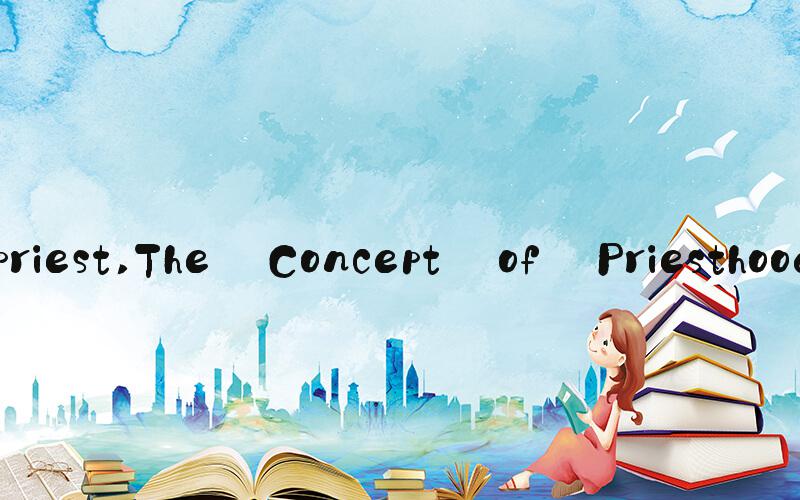
 Priest: An Exploration of the Religious Calling
Priest: An Exploration of the Religious CallingPriesthood is one of the oldest and most respected callings in human history. The role of a priest is to serve as a mediator between the divine and the human. They are often seen as spiritual leaders, guardians of tradition, and counselors to their communities. This article will explore the concept of priesthood, the different types of priests, and the roles they play in various religions.
The Concept of PriesthoodThe concept of priesthood can be traced back to ancient civilizations such as the Egyptians, Babylonians, and Greeks. In these societies, priests were responsible for performing religious ceremonies and rituals, making sacrifices, and interpreting the will of the gods. They were also often viewed as healers and mystics, possessing special knowledge and abilities.
In the Judeo-Christian tradition, the role of the priest is similar, with a focus on serving as a bridge between God and the people. Priests are responsible for leading worship services, administering sacraments, and providing guidance and support to their congregations. They are often seen as moral authorities who uphold the teachings of their respective faiths.
Types of PriestsThere are many different types of priests, each with their own responsibilities and duties. In the Catholic and Orthodox Christian traditions, there are several orders of priests, including bishops, priests, and deacons. Bishops hold the highest rank and oversee the administration of the church, while priests and deacons assist with the sacraments and other duties.
In Hinduism, there are also many different types of priests, including the Brahmin, who perform religious ceremonies and rituals, and the Guru, who provides spiritual guidance and instruction. In Buddhism, priests are known as monks or nuns, and they focus on meditation and spiritual cultivation.
The Roles of PriestsThe role of a priest varies depending on the religion and culture in which they serve. In many traditions, priests are responsible for maintaining the teachings and traditions of their faith, as well as providing guidance and support to their congregations.
For example, in the Catholic Church, priests are responsible for administering the sacraments, preaching sermons, and offering counsel and support to their parishioners. In Hinduism, priests perform religious ceremonies and rituals, such as weddings and funerals, and are often consulted for advice on spiritual matters.
Priests also often play a role in maintaining the social and cultural traditions of their communities. In many cultures, the priest is seen as a mediator between the earthly and spiritual realms, and is often asked to perform rituals and ceremonies for important life events.
The Challenges of PriesthoodWhile priesthood can be a rewarding and fulfilling calling, it is not without its challenges. Priests are often asked to provide guidance and support to their communities during difficult times, such as during times of grief or turmoil. They are also often called upon to help resolve conflicts and provide counsel for difficult situations.
In addition, priests must often navigate the complex and changing landscape of their respective faiths. As society and culture evolve, so do the beliefs and practices of religions. Priests must be able to adapt and respond to these changes while upholding the traditions and core teachings of their faiths.
ConclusionOverall, priesthood is a complex and multifaceted calling that plays a vital role in many religions and cultures. Priests serve as mediators between the divine and the human, providing guidance, support, and wisdom to their communities. While there are many challenges to the priesthood, it remains one of the oldest and most respected callings in human history.
